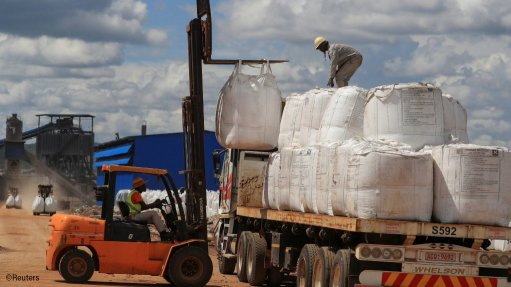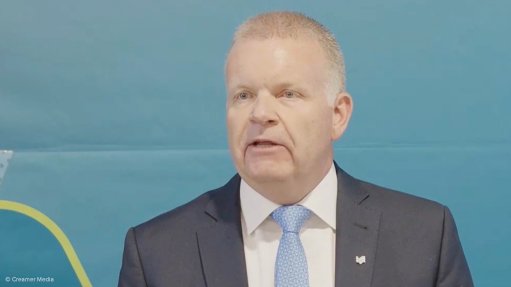Hurdles in Central, East Africa hamper mining
While the outlook for mining is bright, continued resource nationalism, increasing Chinese influence in mining affairs and illegal mining are significant challenges that Central and East Africa continue to face, says Boies Schiller Flexner partner Timothy Foden.
He notes that countries in the region that had formerly sought to upend their mining investment frameworks have retreated from some of the harsher and more unrealistic measures because they created great regulatory and practical uncertainty.
“Certain African countries are making clear their new and more welcoming attitude towards foreign investment. We are starting to see some real momentum in countries such as Rwanda, Kenya and Uganda where the mining industries are perhaps not as developed as those in, for example, the Democratic Republic of Congo, Tanzania or Zambia.”
Foden argues that, although resource nationalism seems to be receding, as some countries have grown cognisant of its deterring effects on investors, other countries are continuing to pursue the nationalisation of certain assets involving key minerals.
Chinese Influence
Foden says the increased Chinese presence through investment has also been a challenge for the region as it can have a significant influence on supply chains and the application of regulation.
“China has shown a growing interest in the mining belt of Central and Southern Africa, comprising Zambia, Tanzania and Mozambique. This area is well endowed with copper, iron-ore, gold, manganese and various base metals.
“We all know the role that Chinese investment is playing in the region, particularly in Kenya and Zimbabwe. As the Chinese continue to develop assets in the region, particularly battery mineral assets, their influence will grow and this poses significant challenges for mining, particularly in the labour market.”
He cites research done in 2017 by information technology consulting company Trading Economics, which found that China invested $58-billion in the sub-Saharan Africa mining and energy sectors from 2005 to 2017. The data also highlights that China is generating demand for metallic and mineral goods.
Further, by mid-2017, more than 10 000 Chinese-owned companies were operating in Africa and, since 2010, one-third of Africa’s power grid and infrastructure has been financed and constructed by Chinese State-owned companies.
Foden notes that China’s presence and influence threaten the growth of local governments and employment opportunities for African citizens, as Chinese companies often use their own workers to work in the mines.
Illegal Mining and Changing Legislation
Illegal mining continues to be a serious problem in the region and although illegal mining is not a new phenomenon, the evolving nature of these operations is concerning to the wider mining industry, comments Foden.
“While it was interesting to see Uganda take a firm stance against it in its new legislation, foreign investment continues to be tested by illegal mining, particularly in jurisdictions such as Tanzania. Illegal mining in the region has become quite sophisticated and organised, largely operating on a cooperative and broker basis. This is not small-scale, artisanal stuff anymore.”
Further, many African countries, such as Uganda and Zimbabwe, are amending or adding new legislation to protect formal mining interests.
Meanwhile, Uganda’s Parliament passed a new Mining and Minerals Bill in February 2022. Upon the President’s signature, it will become law.
The Bill established the Uganda National Mining Company, which will hold a 15% free carried interest in all large and medium-sized mining companies, as well as options to take on more shareholding for a price. It also acknowledges the need to involve local governments in the entire permitting and environmental-impact assessment processes.
Foden says that, although the features of the Bill add red tape, it aligns Uganda with other mining jurisdictions in the region and is important in the development of stakeholder engagement.
“I’m unaware of any potential claims that may be brought against Uganda because of these shifts in the regulatory framework and, indeed, some of the changes may be welcomed, such as the law’s crackdown on illegal mining. Zimbabwe is also amending its mining legislation for the first time since 1961.”
Mititgation
To mitigate these problems, Foden suggests that States in the region should involve international law firms to consult on new mining legislation,
Consequently, this will enable countries to enact needed, modernising legislation while limiting potential liability for breaching their international obligations under investment treaties.
“For the mining community, the advice is always the same: ensure – when structuring your investment into a jurisdiction in the region – that you’ve done so in a way that affords you the ability to bring a claim under an investment treaty, should things go awry,” he adds.
“In the early, prospecting or exploration stage, it is more important that the holding structure ensures that there is treaty protection, rather than the tax affairs being in order – after all, very few prospectors or explorers pay taxes or royalties in the first place,” he concludes.
Article Enquiry
Email Article
Save Article
Feedback
To advertise email advertising@creamermedia.co.za or click here
Announcements
What's On
Subscribe to improve your user experience...
Option 1 (equivalent of R125 a month):
Receive a weekly copy of Creamer Media's Engineering News & Mining Weekly magazine
(print copy for those in South Africa and e-magazine for those outside of South Africa)
Receive daily email newsletters
Access to full search results
Access archive of magazine back copies
Access to Projects in Progress
Access to ONE Research Report of your choice in PDF format
Option 2 (equivalent of R375 a month):
All benefits from Option 1
PLUS
Access to Creamer Media's Research Channel Africa for ALL Research Reports, in PDF format, on various industrial and mining sectors
including Electricity; Water; Energy Transition; Hydrogen; Roads, Rail and Ports; Coal; Gold; Platinum; Battery Metals; etc.
Already a subscriber?
Forgotten your password?
Receive weekly copy of Creamer Media's Engineering News & Mining Weekly magazine (print copy for those in South Africa and e-magazine for those outside of South Africa)
➕
Recieve daily email newsletters
➕
Access to full search results
➕
Access archive of magazine back copies
➕
Access to Projects in Progress
➕
Access to ONE Research Report of your choice in PDF format
RESEARCH CHANNEL AFRICA
R4500 (equivalent of R375 a month)
SUBSCRIBEAll benefits from Option 1
➕
Access to Creamer Media's Research Channel Africa for ALL Research Reports on various industrial and mining sectors, in PDF format, including on:
Electricity
➕
Water
➕
Energy Transition
➕
Hydrogen
➕
Roads, Rail and Ports
➕
Coal
➕
Gold
➕
Platinum
➕
Battery Metals
➕
etc.
Receive all benefits from Option 1 or Option 2 delivered to numerous people at your company
➕
Multiple User names and Passwords for simultaneous log-ins
➕
Intranet integration access to all in your organisation

















